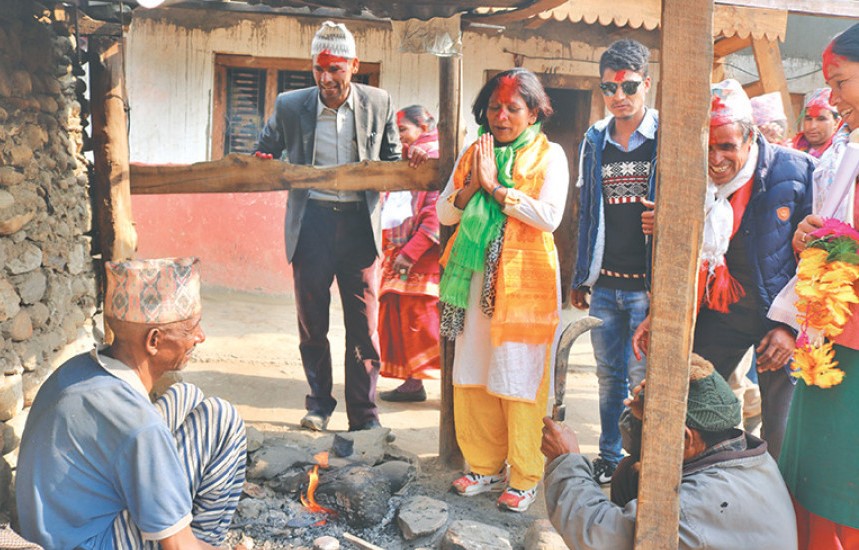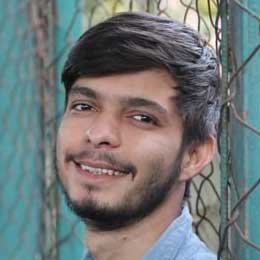
As the November elections draw closer, concerns have resurfaced about fair representation of Dalits in Parliament and provincial assemblies.
Rights activists, stakeholders and lawmakers from the Dalit community are renewing their calls, demanding equitable share in candidacies under the direct election system.
Dalit representation should be ensured based on the ratio of the Dalit population to the country’s total population, they say.
Dalits are as yet an underrepresented group in the legislature, although voices for their fair representation have grown over time.
As per the 2011 census, the Dalits comprised around 14 percent of the total population. But in the 2017 elections only 20 lawmakers from the Dalit community, a mere 7.27 percent of the total, were elected to the federal parliament. In the National Assembly, the representation of Dalits is around 12 percent.
The main problem lies in the top leadership’s conservative mentality, which tends to oppose fair representation of Dalits, Laxmi Pariyar, a lawmaker from the Nepali Congress, said.
“Many movements have reiterated the representation issue, but to no avail,” Pariyar said. “No significant progress is being made towards ensuring fair Dalit representation in legislatures and other state organs.”
Rita Pariyar, a Dalit rights activist, said Nepal’s political system is still disregarding fair representation of Dalits, despite a little hope sparked by the proportional representation electoral system.
Various studies show Dalits are not proportionally represented in Nepal’s legislatures, and local governments.
A recent study by the Samata Foundation, an organisation which advocates for marginalised groups, says the political parties didn’t field a single woman Dalit candidate in 124 wards in the 2022 local elections, ignoring the mandatory provision.
Similarly, the number of mayors who are Dalit decreased by half this time compared to the previous local polls. The number of Dalit deputy mayors has also decreased from 11 in the previous polls to eight this time. Only 2.73 percent of the total deputy mayors across the country are Dalit.
The number of Dalit chairpersons in rural municipalities, however, has increased from just one in the previous polls to seven this time. But the number of Dalit vice-chairs in rural municipalities decreased from 16 in the 2017 elections to seven this time.
Pradip Pariyar, chairperson of the Samata Foundation, said even though the constitution of Nepal has the provision of proportional inclusion, none of the political parties has bothered to implement it.
He also sees the need to amend the Election Act, as it mentions the inclusion principle but does not state that it should be based on population. “State agencies and political parties should work to follow the principle of proportional representation based on population,” he said.
Dalit activists and lawmakers concur that political parties do not consider Dalit candidates as electable under the first-past-the-post electoral system.
“A traditional notion that politics is not for Dalits still persists,” Pariyar, the lawmaker, said. “Although the issue of Dalit representation is brought up occasionally, major parties are still reluctant to field Dalit candidates in direct elections fearing loss. Dalits are limited to the proportional representation electoral system.”
Every political party must ensure an equitable share of Dalit candidates under the direct elections, she said.
According to her, Dalits are given chances only as a token, which does not proportionately represent the whole community. “Moreover, parties see the community only as a vote bank,” she said.
According to Pradip Pariyar, most of the top leadership positions in the political parties include people from a particular community and they do not want to let go of their hold on power. Also a mentality prevails in the political parties that Dalit candidates cannot garner votes and win elections, he said.
“There are many electable Dalit candidates and all they need is a chance. The parties, guided by a traditionalist mindset, deny tickets to such candidates,” he said. “Do all the candidates from other communities contesting the elections come out as winners? Why are only the Dalits deprived of chances to contest the direct elections?”
Activists and stakeholders say that Dalit leaders in state organs should press their concerns effectively for fair representation of the community.
Dalit concerns will be heard in a fair manner only if there are Dalits in decision-making levels, said Rita Pariyar, the Dalit rights activist.
“The Dalit leaders in state organs should also assert our rights and raise our concerns strongly,” Pradip Pariyar, the chairperson of the Samata Foundation, said. “If our concerns about fair representation are not heeded, the next elections will be no different to the previous ones where we were grossly underrepresented.”

Nishan Khatiwada
Nishan Khatiwada is a reporter covering national politics for The Kathmandu Post. Before joining the Post, he worked for The Annapurna Express and Nepal Live Today.
source : ktmpost